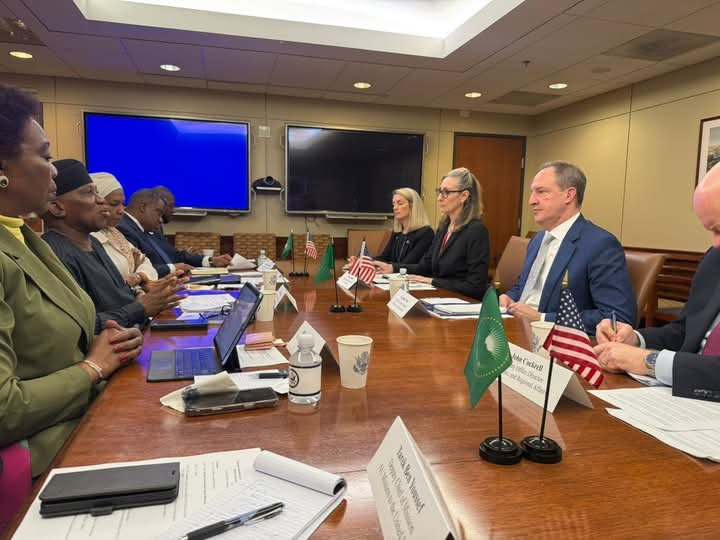The African Union’s efforts to secure U.S. financial backing for its newly launched peacekeeping mission in Somalia, AUSSOM (African Union Somalia Support Mission), have hit a major setback, with Washington once again refusing to commit funds under the current arrangement.
According to diplomatic sources cited by Africa Intelligence, recent face-to-face negotiations between AU representatives and U.S. officials ended without progress. American diplomats reiterated their stance that the United States would not fund the AUSSOM operation in its present form—a position consistent with statements made during a previous meeting in Kampala.
AUSSOM officially replaced the African Union Transition Mission in Somalia (ATMIS) at the start of 2025, taking over peacekeeping responsibilities after a gradual drawdown of ATMIS troops. The new mission was designed to maintain security gains and support Somalia’s journey toward a nationally led stabilization process. However, AUSSOM’s launch has been marred by a deepening financial crisis.
ATMIS, which had been in place since 2022 following the reconfiguration of AMISOM, left behind an unpaid debt of $96 million, primarily in unpaid troop salaries and operational costs. Peacekeepers have reportedly gone months without pay, exacerbating tensions within contributing countries, especially Uganda, whose President Yoweri Museveni is said to be counting down the days to the promised 60-day payment resolution deadline.
In a bid to salvage the situation, the African Union dispatched a delegation to Washington, hoping to secure minimum financial commitments from the U.S. government. But AU Commissioner for Political Affairs, Peace and Security, Ambassador Bankole Adeoye, has so far failed to sway U.S. policymakers.
Adding to the urgency, the African Union has scheduled a donor conference in Doha later this month, where it hopes to attract broader international support for AUSSOM. However, the absence of U.S. funding—a historically significant donor to African peace operations—could complicate the AU’s ability to mobilize sufficient resources.
Diplomats warn that without urgent funding, AUSSOM risks operational paralysis, which could undermine fragile security conditions in Somalia, particularly as the Somali federal government prepares for critical state-building efforts and upcoming elections.
While AUSSOM was envisioned as a more flexible and cost-effective successor to ATMIS, the mission’s financial struggles reflect broader challenges in peacekeeping financing and shifting geopolitical priorities among traditional donors.
The African Union is now under increasing pressure to redefine its funding model and seek alternative partnerships, as the Horn of Africa remains a strategic region marked by militant threats, maritime security risks, and contested foreign influence.



